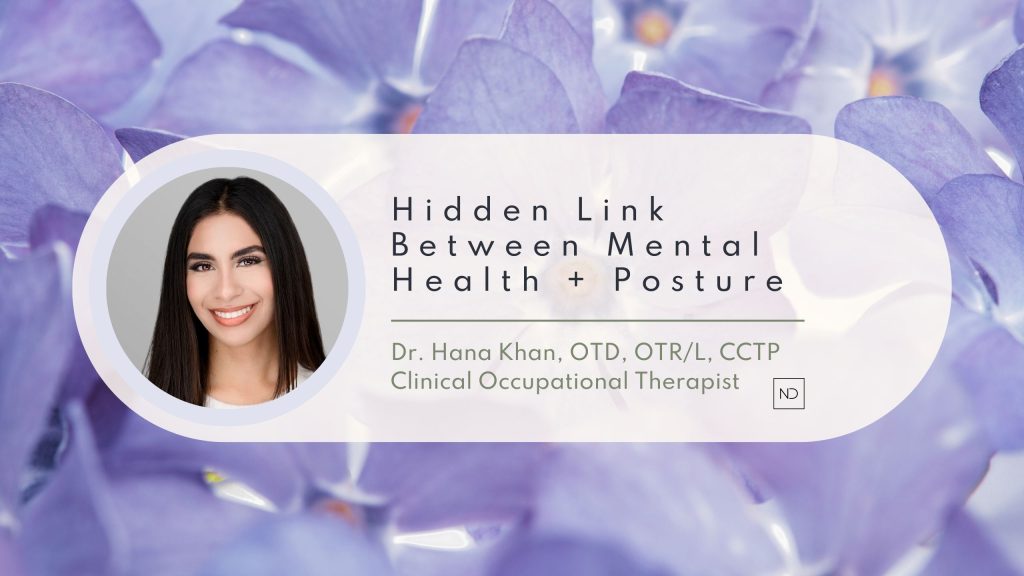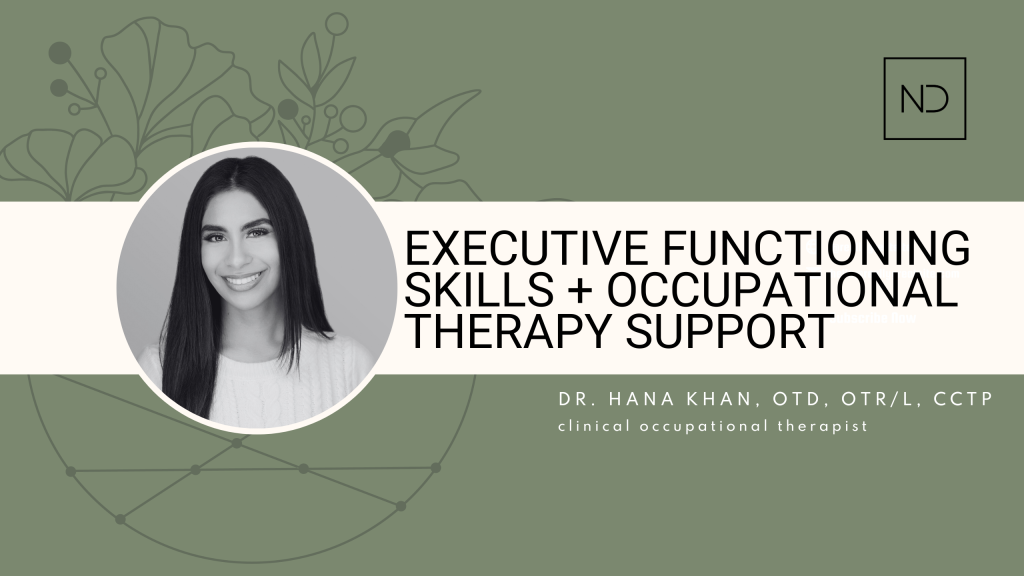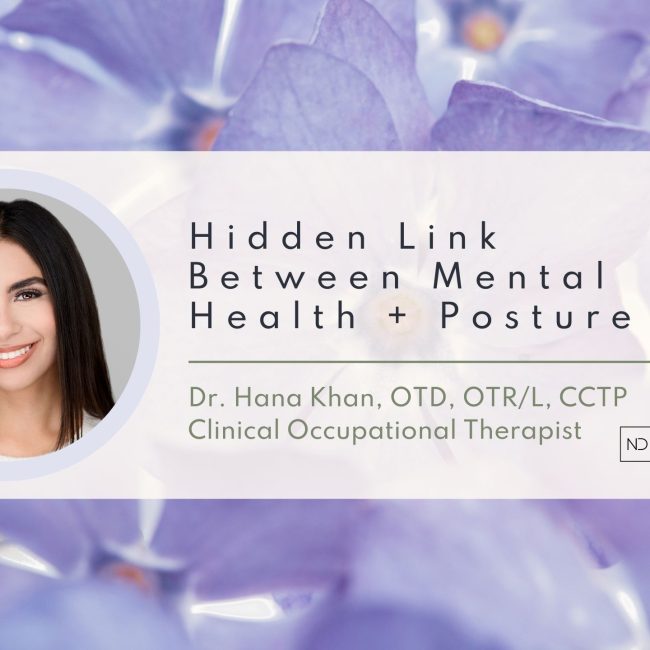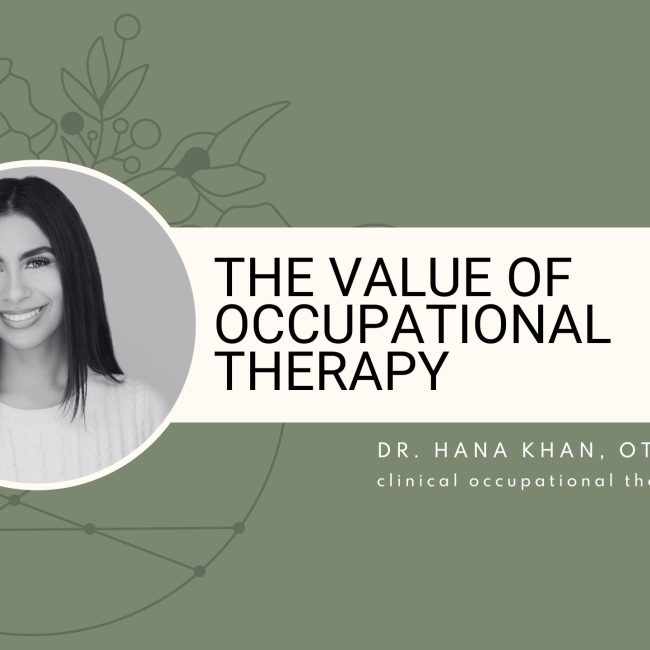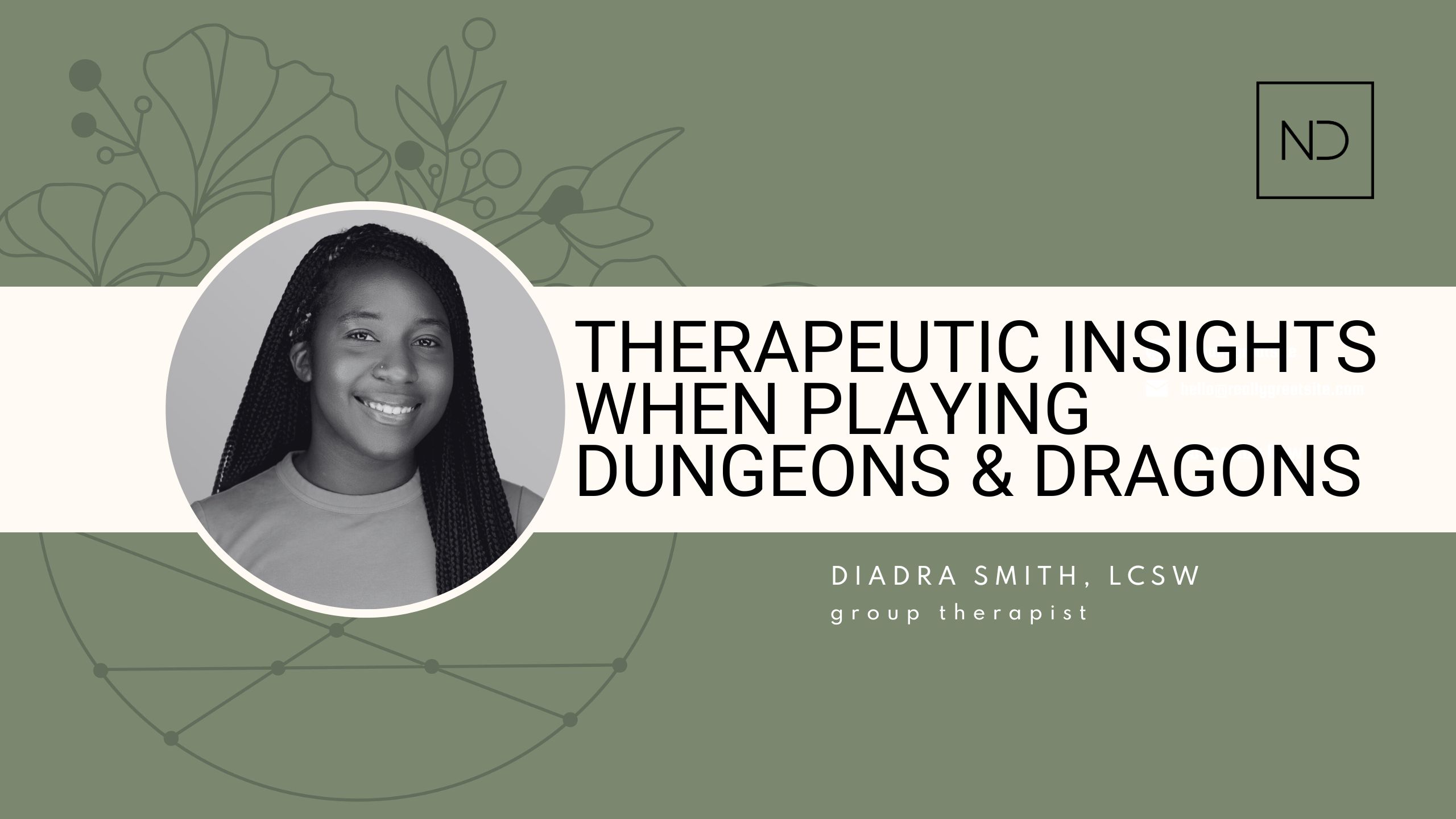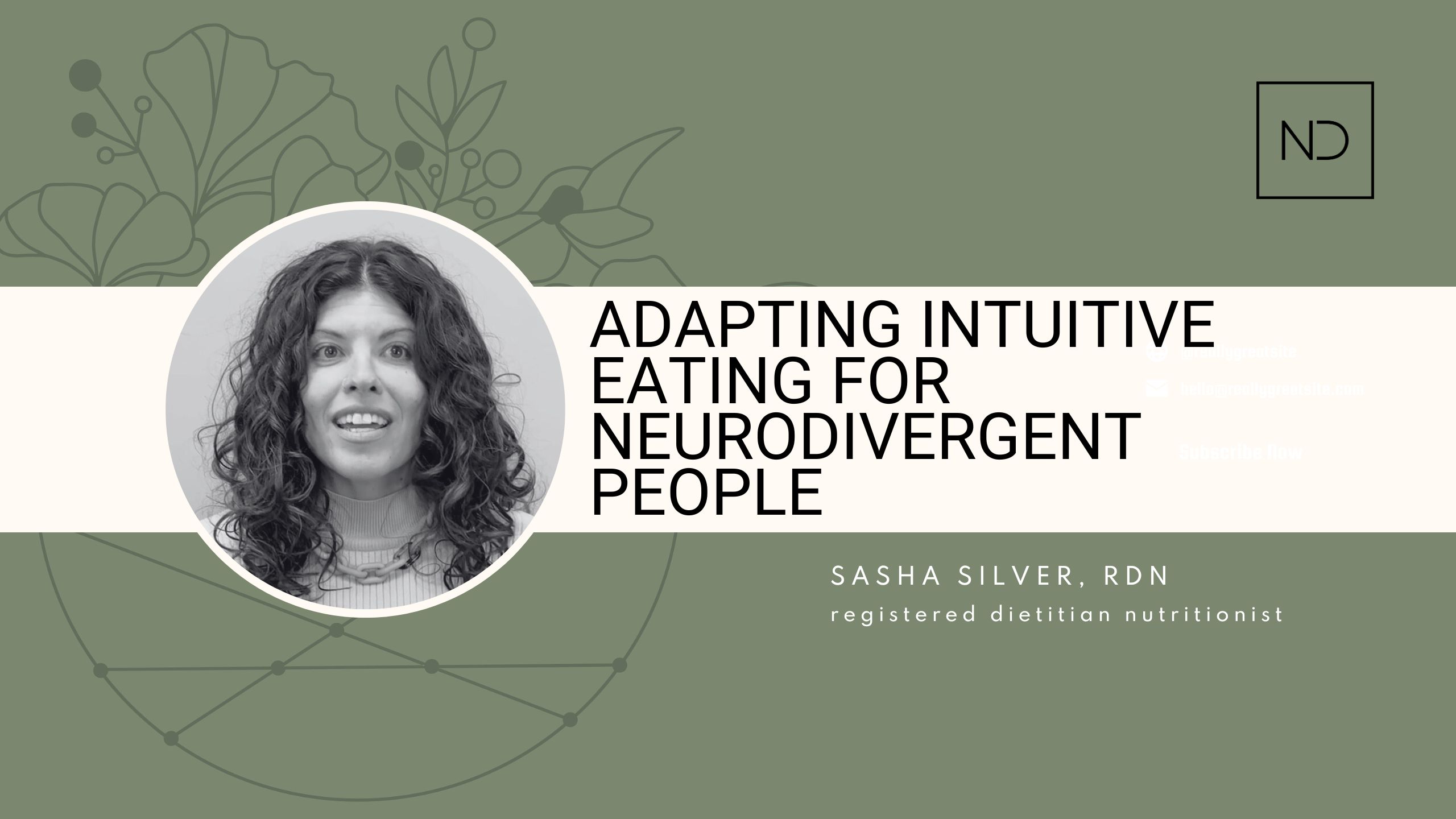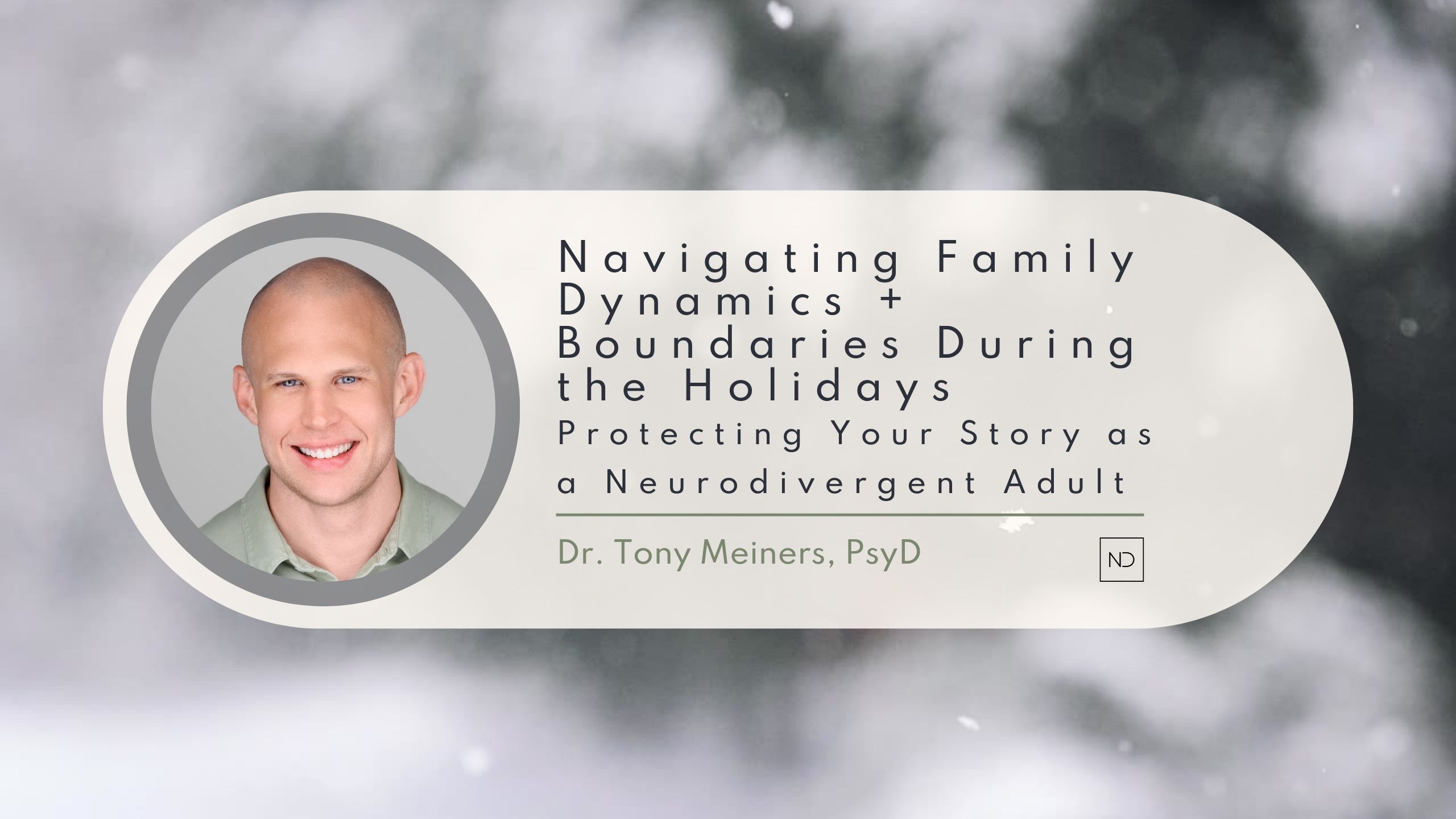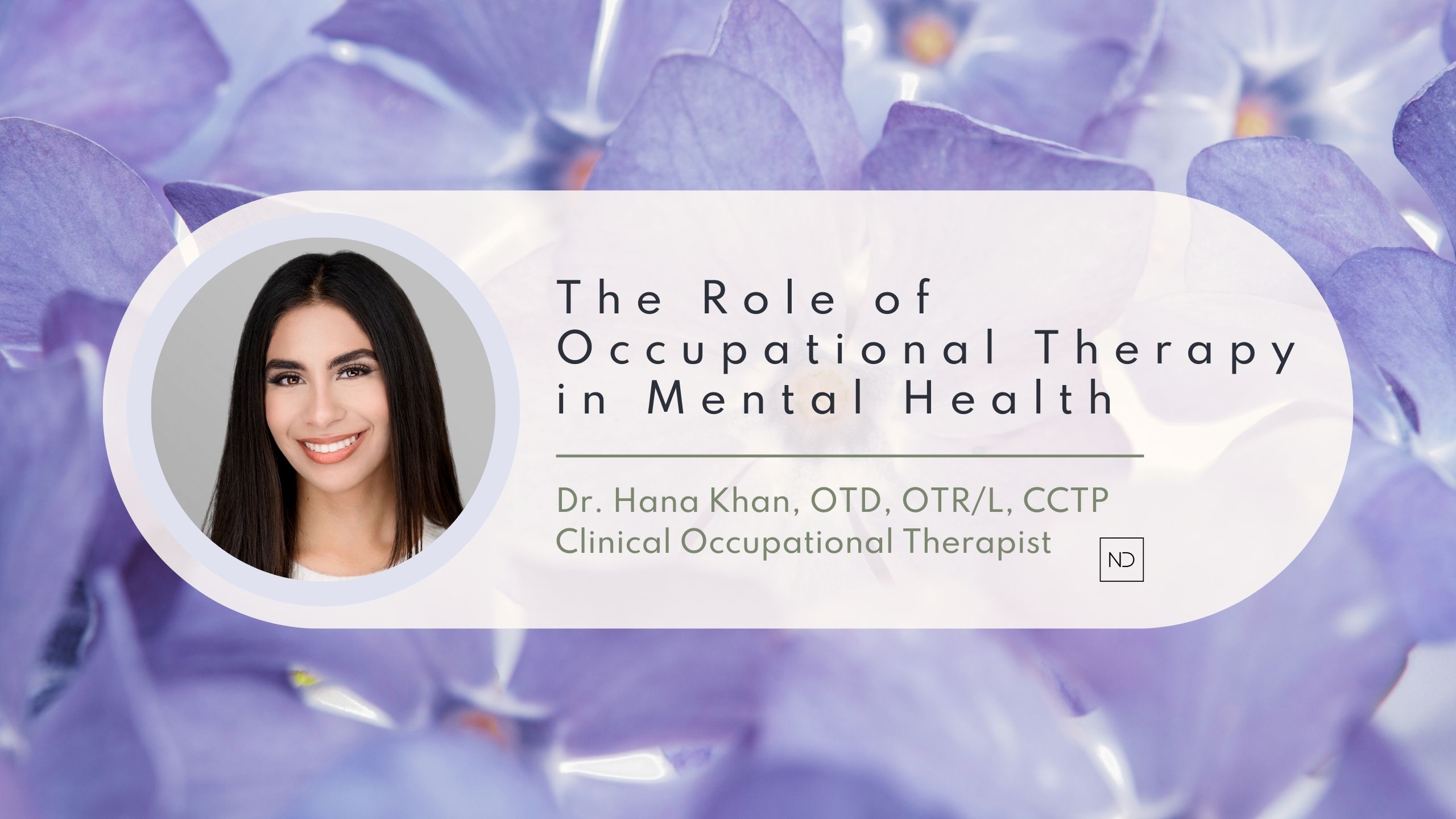
The Role of Occupational Therapy in Mental Health
Written by: Dr. Hana Khan, OTD, OTR/L, CCTP
The Role of Occupational Therapy in Mental Health :: Occupational Identity
Occupational Science
In order to understand the role of Occupational Therapy in mental health, you need to understand the theory behind it. Occupational Science, the foundational theory behind occupational therapy, draws on the principles of neuroplasticity to explain how our daily activities shape our mental health and well-being.
Some people say “you are what you eat.” Occupational Science says, YOU ARE WHAT YOU DO. Every single thing that you do from the moment that you wake up in the morning to the moment that you go to sleep at night shapes your identity, the roles that you play in life, your relationships with others, your self-narrative, and your sense of life meaning. This theory examines what we do, how we engage in activities that are meaningful to us, and why – and how the answers to these questions relate to our identity, well-being, and life purpose.
Humans as Occupational Beings
As occupational beings, we are designed to do. Occupational Science is grounded in the understanding that human beings are inherently active and purposeful. It studies the everyday activities, or occupations, that people engage in and how these activities contribute to health and well-being. Key to this understanding is the concept of neuroplasticity – the brain’s ability to reorganize itself by forming new neural connections throughout life. This means that the activities we engage in can actually shape the structure and function of our brains. Engaging in meaningful activities is not only natural to us – it’s essential to our holistic wellness.
Occupational Balance
Occupational balance is more than just time management; it’s about fulfilling our needs across different areas of life. It involves engaging in a variety of activities that provide physical, mental, emotional, and social benefits. Occupational balance refers to the harmonious arrangement of daily activities that provide satisfaction and promote well-being. It encompasses a balance between work, rest, self-care, and leisure activities, ensuring that no single activity dominates our time at the expense of others. According to occupational science, a well-balanced life includes meaningful participation in various occupations, which can positively impact overall health and well-being (Wilcock, 2006).
…
ABOUT DR. KHAN
UNIVERSITIES + DEGREES
Bachelor of Arts in Psychology, Themed Entertainment Design, Minor: Occupational Science [University of Southern California] Master of Arts in Occupational Therapy [University of Southern California] Doctor of Occupational Therapy [University of Southern California]
Throughout her academic journey, Dr. Khan developed a unique perspective, blending insights from psychology, themed entertainment design, and occupational science. Her interdisciplinary approach informs her work as an Occupational Therapist, where she leverages this diverse knowledge to create innovative and inclusive interventions.
CLINICAL SPECIALIZATION
Dr. Khan combines a passion for inclusivity and nervous system regulation with a specialization in trauma-informed care. With a unique background in theme park design serving as the catalyst for her journey, she is driven by the belief in empowering others to become active participants in their own narratives. Her role in developing a Primary Care program within the Internal Medicine department at Kaiser has provided invaluable insights, exposing her to a myriad of diagnoses and allowing her to apply her skills in nervous system regulation across a broad spectrum. Beyond clinical practice, Dr. Khan is an author with publications ranging from children’s books to the American Journal of Occupational Therapy. In every facet of her work, Dr. Khan seeks to create a therapeutic environment that nurtures resilience and encourages individuals to rewrite their stories. Her unique blend of clinical expertise, creative inspiration from theme park design, and dedication to inclusivity reflects a compassionate and forward-thinking approach to the field of occupational therapy.
CERTIFICATIONS
Certified Clinical Trauma Professional, CA State Seal of Biliteracy in Spanish, Cultural Competence for Behavioral Health Professionals, Screening, Brief Intervention, and Referral to Treatment, Mental Status Examination Training, QPR for Suicide Prevention, CITI Human Subjects, Dialectical Behavioral Therapy Advanced Training (DBT), Motivational Interviewing, AOTA Fieldwork Educator
Do you have a question?
Send us a message


